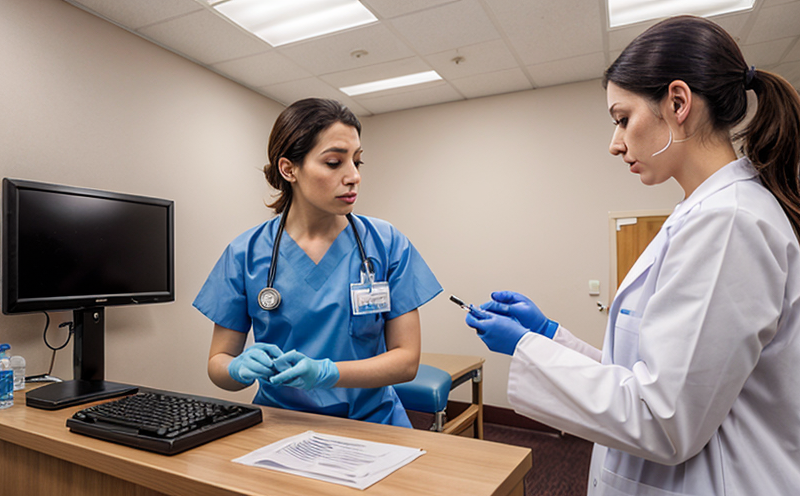Veterinary Drug Acute Toxicity Screening in Fish Models
The evaluation of veterinary drugs through acute toxicity screening using fish models is a critical step in ensuring public and animal health safety. This service employs advanced methodologies to assess the potential harmful effects of veterinary medications on aquatic life, which can serve as early indicators of broader environmental impacts. The use of fish models allows for efficient testing while providing insights into the pharmacological behavior and toxicological profile of new or existing drugs.
Our laboratory specializes in conducting acute toxicity tests according to internationally recognized standards such as ISO 11348, which outlines methodologies for assessing the acute toxicity of chemicals. These tests are crucial not only for regulatory compliance but also for guiding the development and optimization of veterinary drugs. By utilizing these models, we can provide accurate data that supports informed decision-making processes in pharmaceutical R&D.
The process begins with selecting appropriate fish species based on their sensitivity to potential toxins. Commonly used species include rainbow trout (Oncorhynchus mykiss) due to its wide range of physiological responses and ease of handling. Once the chosen model is selected, detailed protocols are followed which involve exposing a controlled group of fish to varying concentrations of the drug in question over defined time intervals.
Following exposure, various endpoints are monitored including mortality rates, behavioral changes, and histopathological alterations observed within organs like gills or liver tissues. These observations form the basis for calculating LC50 values (median lethal concentration), which indicate the level at which half of the exposed organisms die after a specified period.
Our team ensures that all procedures adhere strictly to ethical guidelines laid out by organizations such as the American Veterinary Medical Association (AVMA). This includes minimizing stress on animals and ensuring humane treatment throughout experiments. Additionally, we maintain strict quality control measures during sample preparation, measurement techniques, data analysis, and reporting phases of each assay.
The results generated from these tests are invaluable for several reasons. They help pharmaceutical companies identify potential risks early in the development stages thereby reducing costly failures later on. Moreover, they provide regulators with reliable scientific evidence needed to approve new products safely without compromising animal welfare standards.
In summary, our veterinary drug acute toxicity screening service using fish models offers a robust platform for evaluating the safety profile of various compounds across different applications from antibiotics to antiparasitics. Through rigorous adherence to established protocols and continuous innovation in methodology, we strive to contribute positively towards enhancing both human and animal healthcare.
Applied Standards
Veterinary drug acute toxicity screening conducted by our laboratory adheres strictly to international standards including ISO 11348-1:2015 which specifies the procedure for determining acute toxicity using fish models. This standard ensures consistency and reliability in testing procedures worldwide. Compliance with such guidelines is essential not only because it guarantees accurate results but also because it aligns our practices with global regulatory expectations.
Furthermore, we follow additional protocols like OECD 203 which provides recommendations for conducting freshwater fish acute toxicity tests using rainbow trout (Oncorhynchus mykiss). These internationally recognized guidelines ensure that our testing methods are up-to-date and scientifically sound. By adhering to these standards, we can provide clients with confidence in the integrity of their data.
Customer Impact and Satisfaction
- Enhanced Product Quality: Our rigorous testing ensures that only safe and effective veterinary drugs reach the market, enhancing overall product quality and reliability.
- Regulatory Compliance: By adhering strictly to international standards like ISO 11348-1:2015, we help our clients ensure compliance with stringent regulatory requirements, thus avoiding costly delays or rejections during approval processes.
Competitive Advantage and Market Impact
- Pioneering Research: Being at the forefront of this technology allows us to offer unique insights into drug behavior, giving our clients a competitive edge in the market. Our research findings contribute significantly to advancing knowledge within the field.
- Affordable Solutions: We strive to provide cost-effective solutions without compromising on quality or accuracy. This makes advanced testing accessible to more companies and institutions, broadening industry capabilities.





